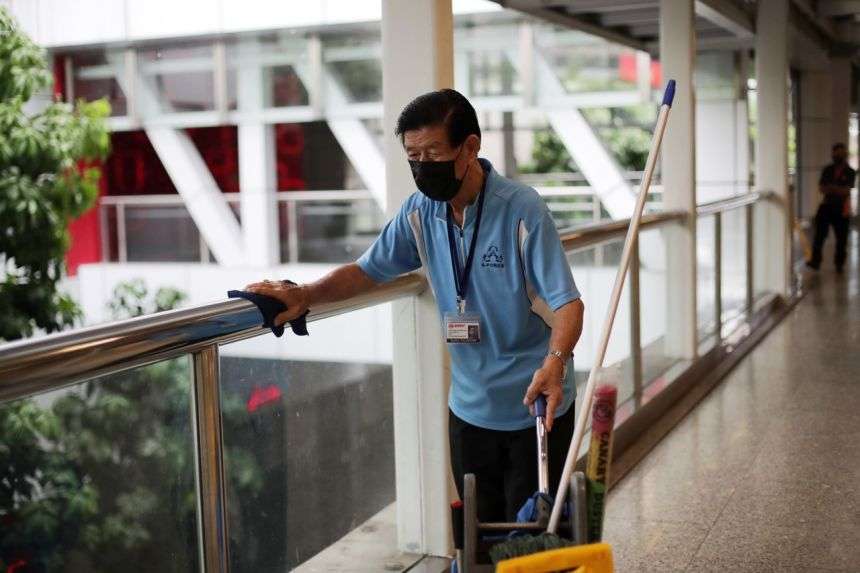TL;DR – This wage increase builds on the earlier schedule of base wage increases that’s in place till 30 June 2023.
In a positive step towards recognizing the work of our essential workers such as cleaners, it has been announced that the wages of cleaners will go up each year from 2023, for six years.
This announcement, which came after proposals put forth by the Tripartite Cluster for Cleaners (TCC) on the cleaning wage ladder were accepted by the Government on Monday (7 June), would further recognize the importance of our cleaners amidst this pandemic, and their good work done.
Most importantly, this move will push our cleaners upwards as it attempts to narrow the income disparity of cleaners with other workers, said Chairman of the TCC and NTUC assistant director-general Zainal Sapari.
Did you know? Cleaners’ wages have already been rising since 2017 after a review of their wages started in 2014.
The Progressive Wage Model (PWM) for cleaners took effect for some cleaning contracts from 2017, and subsequently for all cleaning contracts from 2018 after the Government agreed to a 3% year-on-year wage increase from 1 July 2020 to 2022, on top of a mandatory PWM Bonus which the TCC has pushed for.
Higher wages for the cleaners

Come 1 July 2023, the first adjustment will see the base wages of all cleaners increase. For instance, the base wages of the General Cleaners increase to $1,570, up from $1,312 in 2022.
The wage increase certainly looks optimistic and positive in recognizing the effort of our cleaners as this move is expected to benefit up to 40,000 Singaporean/PR cleaners employed by the 1,500 different local cleaning companies.
Beyond 2028, the TCC said it would review and submit its recommendations to the government again, just like this recommendation, which was submitted and approved before 2022.
Training for the cleaners
The PWM for cleaners not only reconciles the demand for an increase in cleaners’ wages but also ensures at the same time that cleaners are upskilled and gain increased productivity, which is important to employers and the clients they provide their services to.
As such, with effect from 31 December 2022, all licensed cleaning businesses must ensure that their cleaners attain one Workplace Safety and Health-related module, and one of the core Workforce Skills Qualification (WSQ) modules identified by the TCC.
Now, some may question that increasing the wages of local cleaners would lead to a situation where employers turn to foreign workers.
That’s a valid question!
But did you know that the cleaning industry is regulated by a quota system and dependency ratio? To put it simply, a company cannot entirely rely solely on foreign workers.
I’ve done the math and research so you don’t have to — for every two local cleaners employed, the company can hire one foreign cleaner. For every four local cleaners employed, the company can hire two foreign cleaners. So on and forth — you get the idea.
This is a positive first step in compensating fairly for their efforts, but certainly not the last step we should take! Recognizing the work of our cleaners does not just involve the government or employers. We as individuals can show greater understanding and appreciation of our cleaners through our daily acts of kindness.
If essential workers such as cleaners are so important to us, then shouldn’t they deserve more?
